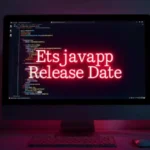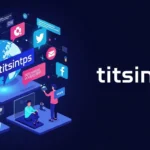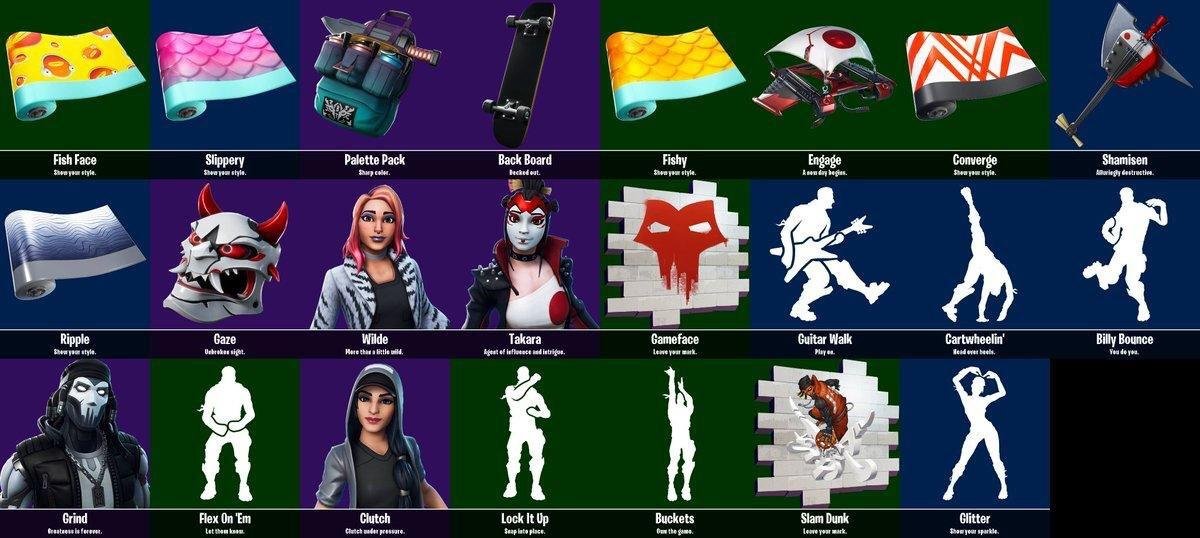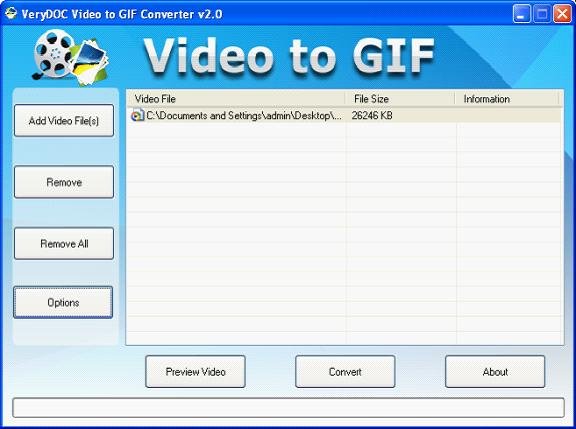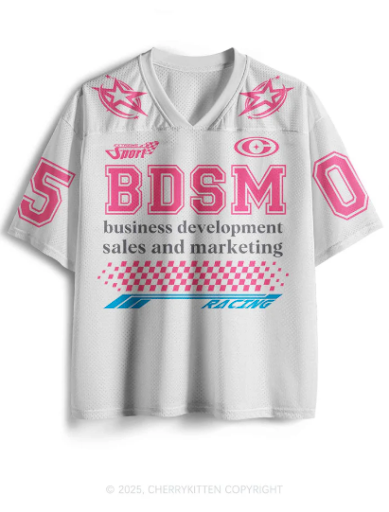Shiinabr has quickly emerged as a fascinating digital term, one that sparks curiosity, conversation, and speculation across a wide range of online platforms. Though its origins remain somewhat mysterious, its presence is undeniable in various internet spaces, from social media feeds to online communities that thrive on emerging trends. Many users encounter the term for the first time while scrolling through trending topics or interacting with creative online subcultures that celebrate the obscure and cryptic. Its growing visibility suggests that Shiinabr has successfully captured the attention of users who are always seeking something fresh, intriguing, and layered with digital complexity.
The rise of Shiinabr demonstrates how quickly a word, username, or digital identity can evolve into something larger than its initial presence. This transformation is fueled by organic user curiosity and the way modern internet culture encourages sharing, remixing, and reinterpreting ambiguous concepts. As new users encounter Shiinabr, they add their interpretations, speculations, and content, turning the term into a living expression of evolving digital trends. What began as a niche moment has expanded into an identifiable phenomenon that continues to take on new meanings depending on the online space in which it appears.
What Is Shiinabr?
Shiinabr is best understood as a flexible and dynamic concept that can encompass a variety of interpretations depending on who is engaging with it. Some online users view it as the name of a potential persona or creator, while others interpret it as a brand-like identity that reflects a particular aesthetic, theme, or cultural attitude. The fluidity of Shiinabr is part of its appeal, as it allows individuals to attach their own meanings and associations to it without being restricted by a rigid definition. This ambiguity stimulates exploration and conversation, two powerful forces in shaping digital relevance.
As the term spreads across platforms, its multifaceted nature becomes more apparent. In some communities, Shiinabr is discussed as a creative idea or fictional identity, while in others it may represent a style, mood, or niche genre of content. This adaptability ensures that Shiinabr continues to evolve rather than fade into obscurity. Its ability to be both undefined and recognizable positions it as a compelling example of how digital culture nurtures new concepts that do not require traditional roots to become part of online discourse.
The Digital Presence of Shiinabr
Across the digital landscape, Shiinabr has built a noticeable presence, appearing in hashtags, comment threads, fan-created content, and trend cycles. Social media users often reference the term in contexts that blend creativity with curiosity, which has helped it gain traction in spaces like TikTok, Instagram, and emerging platforms driven by short-form content. The visibility of Shiinabr often spikes around creative posts, artistic edits, or discussions about digital identity, demonstrating that it resonates most strongly with communities that value imaginative expression.
Online forums and niche groups have also adopted Shiinabr as a topic of discussion, exploring possible meanings and sharing theories about its origins. These interactions contribute to a deeper sense of community around the term, even among users who may interpret it differently. The more frequently the name appears across various online touchpoints, the more it becomes embedded in digital culture. This amplification through shared curiosity underscores how new trends can emerge from minimal origins yet flourish through open-ended engagement.
The Story Behind Shiinabr
The backstory of Shiinabr is one of speculation, creativity, and digital folklore. Because there is no single authoritative explanation, online users have filled in the gaps with theories and interpretations that contribute to its mystique. Some believe Shiinabr may have been inspired by an early username or online persona that gained traction through artistic communities. Others argue that it originated as part of a microtrend or an experimental digital identity that eventually took on a life of its own as users expanded its meaning across platforms.
Despite the lack of documented origins, the myths surrounding Shiinabr add to its appeal. The absence of a rigid backstory invites users to participate in defining what Shiinabr represents. Discussions about its potential beginnings often reflect broader observations about how internet culture embraces ambiguity. Whether rooted in reality or entirely shaped by community imagination, the story of Shiinabr demonstrates how digital identities can form not from clear origins but from collective interpretation.
Cultural Relevance of Shiinabr
As internet culture evolves, concepts like Shiinabr highlight the importance of collective participation in shaping digital meaning. The term has been embraced by online communities that appreciate cryptic aesthetics, symbolic expression, and emerging microtrends. These groups often thrive on content that encourages creativity and conversation, making Shiinabr a natural fit for their digital ecosystems. The more users share and reinterpret the concept, the more culturally relevant it becomes, gaining significance beyond its initial introduction.
Globally, Shiinabr’s appeal extends across borders because it is not tied to any specific language or cultural tradition. Instead, it operates as a digital artifact that welcomes reinterpretation. This open versatility makes it accessible to individuals in different regions and subcultures, each bringing their own nuance to the term. As a result, Shiinabr becomes not just a trending topic but a cultural symbol of modern digital expression and communal meaning-making.
Shiinabr as a Brand or Persona
As Shiinabr continues to expand, many users have begun interpreting it as a brand or digital persona. This interpretation aligns with how online culture often gives rise to personalities or concepts that become recognized even without traditional branding structures. Shiinabr’s name alone carries a distinct aesthetic that feels purposefully crafted, making it suitable for use in creative branding, identity-building, or online storytelling. This imagined persona appeals to users who gravitate toward enigmatic or artistically styled identities.
The audience that engages with Shiinabr often resembles fan communities that form around influencers, emerging brands, or niche creators. These individuals interact with the concept as if it represents a fully-formed digital identity, even if its details remain undefined. This behavior contributes to the momentum of Shiinabr as an evolving persona, continually shaped by how users portray it in their own content, discussions, or creative interpretations.
Content Associated With Shiinabr
Content associated with Shiinabr tends to revolve around creativity, aesthetics, and digital experimentation. Many users create artwork, stylized videos, graphics, or conceptual imagery that reflect their personal interpretations of the term. These creative pieces often feature atmospheric themes, symbolic elements, or futuristic vibes, contributing to the growing visual ecosystem surrounding Shiinabr. As this content spreads, it encourages more users to participate in the trend, amplifying its presence across social feeds and fan communities.
Viral moments linked to Shiinabr typically occur when creators introduce new interpretations that resonate broadly. For example, a compelling piece of artwork or a thought-provoking caption using the term can trigger a wave of engagement. These viral instances demonstrate the term’s potential to inspire creativity and emotional connection. They also highlight how community-generated content drives the evolution of digital trends, allowing Shiinabr to grow through authentic participation rather than traditional marketing pushes.
Visual Identity and Aesthetic of Shiinabr
The aesthetic associated with Shiinabr often incorporates ethereal tones, soft yet striking color palettes, and conceptual imagery that feels both mysterious and symbolic. This visual identity appeals to creators who enjoy blending artistic expression with emotional or atmospheric depth. From abstract designs to futuristic interpretations, Shiinabr’s aesthetic has become a canvas for digital artists who appreciate the flexibility and imaginative potential the term provides.
Typography and stylistic patterns also play a role in shaping the look of Shiinabr. Many creators adopt minimalistic or gracefully stylized fonts that complement the term’s fluid and enigmatic feel. As more users experiment with visual representations, a cohesive yet open-ended aesthetic begins to form. This evolving visual identity strengthens Shiinabr’s cultural position, ensuring that it remains recognizable even as interpretations continue to expand.
Community Interaction and Engagement
Communities built around Shiinabr actively engage through reposts, comments, collaborative projects, and creative remixes. This interaction highlights the participatory nature of digital culture, where users contribute to shaping a concept collectively rather than relying on a centralized source. Engagement patterns show that Shiinabr resonates with individuals who enjoy exploring evolving ideas and transforming them into their own expressions.
Fan spaces and discussion forums offer opportunities for deeper engagement, allowing users to share theories, ask questions, and showcase their interpretations. These environments are essential in turning niche trends into thriving digital phenomena. The growing number of posts, reactions, and shares associated with Shiinabr illustrates the power of community-driven growth, where curiosity and creativity fuel visibility and momentum.
The Evolution of Shiinabr Over Time
Shiinabr’s evolution reflects the natural lifecycle of trends in modern digital environments. Initially, the term appeared sporadically, surfacing in artistic posts or niche micro-communities. As more users encountered it, curiosity fueled its spread, leading to increased mentions, remixes, and interpretations. This early phase established the foundation for Shiinabr’s broader digital presence.
Over time, key moments—such as viral posts or influential creators referencing the term—triggered spikes in visibility. These breakout instances helped Shiinabr transition from a niche reference to a recognizable digital concept. Its current state as a flexible cultural symbol suggests that it will continue to evolve as more people engage with it, interpret it, and incorporate it into their creative expressions. Shiinabr’s future will likely follow the same organic pattern that propelled its original growth.
Psychological Appeal Behind Shiinabr
One of the key reasons Shiinabr resonates with users is its psychological appeal. Humans are naturally drawn to ambiguous concepts that allow for interpretation and emotional projection. Shiinabr embodies this allure by being open-ended enough for individuals to attach personal meaning. Whether users view it as a persona, aesthetic, or symbolic idea, Shiinabr becomes a vessel for their imagination, encouraging creative and emotional investment.
Its subtle mystery also plays into modern online behavior patterns, where users are constantly seeking novelty. The digital world rewards concepts that feel fresh yet familiar, and Shiinabr fits within this niche by offering something recognizable but not easily defined. Its evolving nature contributes to ongoing engagement, as individuals return to reinterpret and explore the concept alongside others in the community.
The Marketing Power of Shiinabr
From a marketing perspective, Shiinabr represents a powerful case study in organic brand-building. Its popularity grew without traditional advertising or structured promotion, relying instead on the enthusiasm and creativity of online communities. This type of user-driven momentum is highly valued in digital marketing because it creates authenticity—something audiences increasingly prioritize when evaluating brands or influencers.
For businesses and creators, Shiinabr demonstrates how ambiguity can be an asset. Flexible concepts are easier for audiences to connect with because they invite participation rather than dictating meaning. Marketers who understand this dynamic can apply similar principles to their own campaigns or brand identities. In addition, the growing interest surrounding Shiinabr highlights potential opportunities for monetization, such as merchandise, collaborative art, or themed digital products created by fans or emerging designers.
Shiinabr and Search Trends
Search interest in Shiinabr has increased consistently as more users encounter the term on social platforms, in creative collaborations, or within aesthetic communities. This upward trend indicates growing curiosity, especially among younger digital audiences who frequently engage with emerging concepts. Search engines show related keywords tied to aesthetic terms, online identities, obscure usernames, and conceptual art, suggesting that users associate Shiinabr with creative and symbolic online culture.
Over time, search behavior reveals how digital phenomena mature. What begins as a niche query becomes a recurrent search topic as more individuals grow interested or attempt to decode the meaning behind the term. This pattern reinforces Shiinabr’s position as an evolving online presence. SEO analysts note that such trends often predict long-term digital relevance, especially when supported by consistent user engagement across multiple platforms.
Controversies or Misunderstandings
As with many online phenomena, Shiinabr has experienced occasional misunderstandings. The lack of a fixed definition has led some users to misinterpret the term or attribute incorrect origins to it. This is common in digital spaces, where new ideas can quickly be reshaped or misrepresented as they spread. These misunderstandings often spark debates within online communities about the “correct” interpretation, though such conversations ultimately contribute to the evolving meaning of Shiinabr.
Controversies surrounding Shiinabr tend to be mild, usually involving disagreements rather than serious conflicts. Some users question whether Shiinabr should be considered a brand, persona, or concept, while others critique attempts to commercialize it. These discussions highlight the challenges that arise when digital phenomena grow rapidly without structured context. Nonetheless, the overall tone of the community remains open and creative, focused more on sharing interpretations than policing them.
Shiinabr in Creative Communities
Creative communities have played a significant role in shaping Shiinabr’s identity. Artists, writers, editors, and digital designers often adopt the term as inspiration for new projects, using it as a thematic anchor for visuals or storytelling. This integration into creative spaces reinforces Shiinabr’s reputation as a concept that thrives within imagination-driven environments. Fan art, stylized edits, and conceptual illustrations continue to expand the visual and narrative possibilities associated with the term.
Collaborative challenges centered around Shiinabr also contribute to its popularity. Some communities host themed events where participants produce art inspired by their interpretations of the concept. These activities strengthen a sense of belonging among participants while simultaneously generating new content that keeps Shiinabr relevant. As long as creative individuals remain engaged, Shiinabr will continue to flourish within artistic subcultures.
How to Engage With or Join the Shiinabr Community
For newcomers curious about Shiinabr, engaging with the community is straightforward and open to interpretation. The first step is simply observing how others use the term—through artwork, posts, discussions, or hashtags. From there, users can begin forming their own understanding of Shiinabr, whether as an aesthetic, persona, or creative concept. Participation often involves creating original content that reflects one’s personal interpretation, contributing to the collective evolution of the idea.
Engaging respectfully is key to maintaining the positive, collaborative nature of the community. New members are encouraged to avoid rigid definitions or attempts to impose meaning on others. Instead, they should contribute creatively and remain open to multiple perspectives. This inclusive approach ensures that Shiinabr remains a fluid and evolving digital phenomenon, shaped by collective interpretation rather than strict guidelines.
Potential Business and Professional Uses
Businesses and creators exploring digital marketing trends may find Shiinabr to be a valuable case study. Its rise demonstrates how community-driven concepts can generate significant interest without formal branding. Companies could adapt similar strategies by embracing mystery, aesthetic appeal, or flexible brand identities that encourage audience participation. For example, brands might release conceptual campaigns that allow consumers to shape the narrative through user-generated content.
However, business use of Shiinabr itself should be approached thoughtfully. Because the concept thrives on organic creativity, overly commercial exploitation could diminish its appeal. Ethical considerations, including respecting the contributions of community members, are essential. When executed thoughtfully, professional use of Shiinabr-inspired approaches can help brands connect with younger audiences who value authenticity and collaborative creativity.
Expert Perspectives on Shiinabr
Digital culture analysts have noted Shiinabr as an example of how modern trends form without centralized leadership or defined origins. Experts argue that such phenomena showcase the evolving nature of online identity and collective creativity. They highlight how users gravitate toward concepts that invite interpretation, encouraging emotional and imaginative engagement. This behavior reflects larger shifts in how digital communities interact with content, brands, and cultural symbols.
Commentators also predict that Shiinabr will continue to inspire new forms of creative expression. Because it functions as an open-ended concept, it can adapt to future platforms, visual styles, or cultural shifts. Industry experts view Shiinabr not as a passing trend but as a testament to the internet’s ability to construct meaning through collaboration. The concept’s longevity will likely depend on continued user interest and creative engagement.
Future Outlook
The future of Shiinabr appears bright, as the concept shows strong signs of continued evolution. Its open-ended nature makes it adaptable to emerging platforms and new digital aesthetics. As more users encounter it, Shiinabr may take on additional meanings, potentially growing into a recognizable symbol within online culture. The trend’s flexibility ensures that it can remain relevant even as digital environments shift.
New technologies, such as immersive content creation tools or AI-driven platforms, may further expand Shiinabr’s reach. These innovations could inspire entirely new interpretations and stylistic representations, breathing fresh life into the concept. Ultimately, Shiinabr’s future will be determined by the communities that engage with it, reflecting the collaborative spirit that shaped its rise.
Conclusion
In conclusion, Shiinabr has become a compelling example of how digital culture transforms names, ideas, or symbols into meaningful online phenomena. Its ambiguous origins and flexible definition have allowed communities to shape its evolution collaboratively, turning it into a living expression of creativity and imagination. Through user-generated content, discussions, and shared interpretations, Shiinabr continues to grow in significance across various digital platforms.
By embracing openness and collective creativity, Shiinabr demonstrates the power of community-driven trends in shaping modern digital landscapes. Whether viewed as a persona, brand concept, aesthetic, or cultural symbol, it remains an intriguing and ever-evolving presence. As long as users continue to explore and reinterpret its meaning, Shiinabr will remain a vibrant part of online culture, providing endless opportunities for creative engagement.
FAQs About Shiinabr
1. What exactly does “Shiinabr” mean?
Shiinabr is an evolving digital concept whose meaning varies depending on user interpretation. It may represent an aesthetic, persona, or creative idea.
2. Is Shiinabr a person or brand?
Not officially. Many users treat it as a persona or brand-like identity, but its definition is open and community-driven.
3. Why is Shiinabr trending online?
Its mysterious nature and growing presence in aesthetic and creative communities have made it popular across social platforms.
4. How do creators use Shiinabr?
They often incorporate it into artwork, edits, conceptual posts, and discussions about digital identity.
5. Does Shiinabr have controversies?
Only mild debates about its origins or meaning; nothing significant.
Read more: UTDPlug




